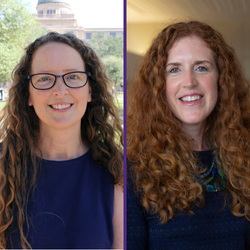
Please join the Global Theory Colloquium as they host Drs. Colleen Murphy, UIUC, and Linda Radzik, (Texas A&M).
How should we think about the Jewish community’s punishment of Jewish kapos after the Holocaust? Or of Americans who fire or shun participants in the January 6 attempted coup? Some complain that non-state actors are impermissibly, illegitimately, and disproportionately holding wrongdoers to account. Non-state accountability practices are particularly fraught because they raise fundamental questions about the proper regulatory role of the state and of law with respect to private responses to wrongdoing.
We argue practices of non-state punishment must be disaggregated. Some non-state punishment is undertaken in pursuit of transitional justice while some is in pursuit of ordinary justice. Distinguishing them matters. Punishment of each kind raises distinctive normative justificatory questions to which any defense of punishment must respond. Similarly, the actor undertaking punishment affects the questions of standing to which any justification of punishment must respond. This paper provides a conceptual map of four categories: ordinary state punishment, ordinary non-state punishment, transitional state punishment, and transitional non-state punishment.
Our mapping articulates the specific questions of standing and justifiability to which each type of punishment gives rise. Our map makes three contributions. First, it adds to a discussion in legal theory and philosophy grounded in a recognition that the state does not have a monopoly over punishment. Second, it supplements an ongoing discussion in transitional justice literature and practice by drawing attention to the distinct justificatory questions that punishment being conducted independently by non-state actors such as individuals and private institutions raise. Third, the map offers a model that can be used to conceptualize other processes of accountability including reparations and truth telling.
Colleen Murphy is the Roger and Stephany Joslin Professor of Law and Professor of Philosophy & Political Science at the University of Illinois at Urbana-Champaign, where she also serves as Director of the Women and Gender in Global Perspectives Program in the Illinois Global Institute. Prior to joining the Illinois faculty, she was an Associate Professor of Philosophy at Texas A&M University. Dr. Murphy has been a Laurence S. Rockefeller Visiting Faculty Fellow at the Princeton University Center for Human Values and a Visiting Professor at the 4.TU Centre for Ethics in the Netherlands. She is the author of The Conceptual Foundations of Transitional Justice (Cambridge University Press, 2017), which received the North American Society for Social Philosophy Book Award; A Moral Theory of Political Reconciliation (Cambridge University Press, 2010); as well as more than 50 articles and book chapters.
Linda Radzik is a professor of philosophy and humanities at Texas A&M University. Prof. Radzik works on moral issues that arise in the aftermath of wrongdoing, including the ethics of forgiveness, reconciliation, criminal punishment, tort law, collective moral responsibility, and the roles third parties play in enforcing and promulgating moral norms. She is the author of Making Amends: Atonement in Morality, Law, and Politics (Oxford, 2009) and The Ethics of Social Punishment: The Enforcement of Morality in Everyday Life (Cambridge, 2020). Radzik is currently interested in how privacy norms both limit and license the practices by which people hold one another accountable for wrongdoing.
Audience
- Faculty/Staff
- Student
- Graduate Students
Interest
- Academic (general)